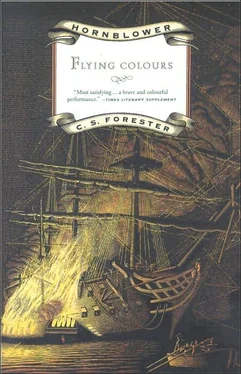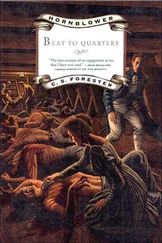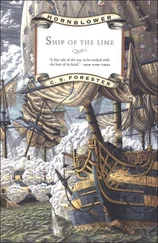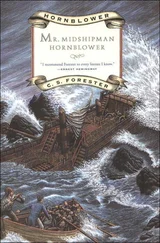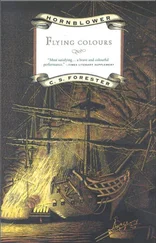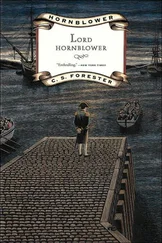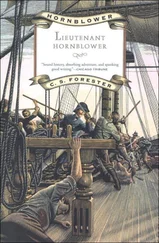Cecil Forester - Flying Colours
Здесь есть возможность читать онлайн «Cecil Forester - Flying Colours» весь текст электронной книги совершенно бесплатно (целиком полную версию без сокращений). В некоторых случаях можно слушать аудио, скачать через торрент в формате fb2 и присутствует краткое содержание. Год выпуска: 1989, ISBN: 1989, Издательство: Back Bay Books, Жанр: Исторические приключения, Путешествия и география, Морские приключения, на английском языке. Описание произведения, (предисловие) а так же отзывы посетителей доступны на портале библиотеки ЛибКат.
- Название:Flying Colours
- Автор:
- Издательство:Back Bay Books
- Жанр:
- Год:1989
- ISBN:0316289396
- Рейтинг книги:5 / 5. Голосов: 1
-
Избранное:Добавить в избранное
- Отзывы:
-
Ваша оценка:
- 100
- 1
- 2
- 3
- 4
- 5
Flying Colours: краткое содержание, описание и аннотация
Предлагаем к чтению аннотацию, описание, краткое содержание или предисловие (зависит от того, что написал сам автор книги «Flying Colours»). Если вы не нашли необходимую информацию о книге — напишите в комментариях, мы постараемся отыскать её.
Flying Colours — читать онлайн бесплатно полную книгу (весь текст) целиком
Ниже представлен текст книги, разбитый по страницам. Система сохранения места последней прочитанной страницы, позволяет с удобством читать онлайн бесплатно книгу «Flying Colours», без необходимости каждый раз заново искать на чём Вы остановились. Поставьте закладку, и сможете в любой момент перейти на страницу, на которой закончили чтение.
Интервал:
Закладка:
“Thank you,” he said, as Brown returned, panting with the canvas bag. “Get me my uniform coat out.”
He stripped off his colonel’s tunic and put on the coat which Brown held for him, experiencing a pleasant thrill as his fingers fastened the buttons with their crown and anchor. The coat was sadly crumpled, and the gold lace bent and broken, but still it was a uniform, even though the last time he had worn it was months ago when they had been capsized in the Loire. With this coat on his back he could no longer be accused of being a spy, and should their attempt result in failure and recapture it would shelter both himself and his subordinates. Failure and recapture were likely possibilities, as his logical brain told him, but secret murder now was not. The stealing of the cutter would attract sufficient public attention to make that impossible. Already he had bettered his position—he could not be shot as a spy nor be quietly strangled in prison. If he were recaptured now he could only be tried on the old charge of violation of the laws of war, and Hornblower felt that his recent exploits might win him sufficient public sympathy to make it impolitic for Bonaparte to press even that charge.
It was time for action now. He took a belaying pin from the rail, and walked up slowly to the seated pilot, weighing the instrument meditatively in his hand.
“Monsieur,” he said, “I want you to pilot this ship out to sea.”
The pilot goggled up at him in the faint moonlight.
“I cannot,” he gabbled. “My professional honour—my duty—”
Hornblower cut him short with a menacing gesture of the belaying pin.
“We are going to start now,” he said. “You can give instructions or not, as you choose. But I tell you this, monsieur. The moment this ship touches ground, I will beat your head into a paste with this.”
Hornblower eyed the white face of the pilot—his moustache was lop-sided and ridiculous now after his rough treatment. The man’s eyes were on the belaying pin with which Hornblower was tapping the palm of his hand, and Hornblower felt a little thrill of triumph. The threat of a pistol bullet through the head would not have been sufficient for this imaginative southerner. But the man could picture so clearly the crash of the belaying pin upon his skull, and the savage blows which would beat him to death, that the argument Hornblower had selected was the most effective one.
“Yes, monsieur,” said the pilot, weakly.
“Right,” said Hornblower. “Brown, lash him to the rail, there. Then we can start. Mr. Bush, will you take the tiller, if you please?”
The necessary preparations were brief; the convicts were led to the halliards and the ropes put in their hands, ready to haul on the word of command. Hornblower and Brown had so often before had experience in pushing raw crews into their places, thanks to the all-embracing activities of the British press-gangs, and it was good to see that Brown’s French, eked out by the force of his example, was sufficient for the occasion.
“Cut the warps, sir?” volunteered Brown.
“No. Cast them off,” snapped Hornblower.
Cut warps left hanging to the bollards would be a sure proof of a hurried and probably illegal departure; to cast them off meant possibly delaying inquiry and pursuit by a few more minutes, and every minute of delay might be precious in the uncertain future. The first of the ebb was tightening the ropes now, simplifying the business of getting away from the quay. To handle the tiny fore-and-aft rigged ship was an operation calling for little either of the judgement or of the brute strength which a big square rigger would demand, and the present circumstances—the wind off the quay and the ebbing tide—made the only precaution necessary that of casting off the stern warp before the bow, as Brown understood as clearly as Hornblower. It happened in the natural course of events, for Hornblower had to fumble in the dim light to disentangle the clove hitches with which some French sailor had made fast, and Brown had completed his share long before him. The push of the tide was swinging the cutter away from the quay. Hornblower, in the uncertain light, had to time his moment for setting sail, making allowance for the unreliability of his crew, the eddy along the quayside, the tide and the wind.
“Hoist away,” said Hornblower, and then, to the men, “Tirez.”
Mainsail and jib rose, to the accompaniment of the creaking of the blocks. The sails flapped, bellied, flapped again. Then they filled, and Bush at the tiller—the cutter steered with a tiller, not a wheel—felt a steady pressure. The cutter was gathering way; she was changing from a dead thing to a live. She heeled the tiniest fraction to the breeze with a subdued creaking of her cordage, and simultaneously Hornblower heard a little musical chuckle from the bows as her forefoot bubbled through the water. He picked up the belaying pin again, and in three strides was at the pilot’s side, balancing the instrument in his hand.
“To the right, monsieur,” gabbled the individual. “Keep well to the right.”
“Port your helm, Mr. Bush. We’re taking the starboard channel,” said Hornblower, and then, translating the further hurried instructions of the pilot. “Meet her! Keep her at that!”
The cutter glided on down the river in the faint moonlight. From the bank of the river she must make a pretty picture—no one would guess that she was not setting forth on some quite legitimate expedition.
The pilot was saying something else now; Hornblower bent his ear to listen. It had regard to the advisability of having a man at work with the lead taking soundings, and Hornblower would not consider it for a moment. There were only Brown and himself who could do that, and they both might be wanted at any moment in case it should be necessary for the cutter to go about—moreover, there would be bound to be a muddle about fathoms and metres.
“No,” said Hornblower. “You will have to do your work without that. And my promise still holds good.”
He tapped his palm with the belaying pin, and laughed. That laugh surprised him, it was so blood-curdling in its implications. Anyone hearing it would be quite sure that Hornblower was determined upon clubbing the pilot to death if they went aground. Hornblower asked himself if he were acting and was puzzled to discover that he could not answer the question. He could not picture himself killing a helpless man—and yet he could not be sure. This fierce, relentless determination that consumed him was something new to him, just as it always was. He was aware of the fact that once he had set his hand to a scheme he never allowed any consideration to stop his carrying it through, but he always looked upon himself as fatalistic or resigned. It was always startling to detect in himself qualities which he admired in other men. But it was sufficient, and satisfactory, for the moment, to know that the pilot was quite sure that he would be killed in an unpleasant fashion if the cutter should touch ground.
Within half a mile it was necessary to cross to the other side—it was amusing to note how this vast estuary repeated on a grand scale the characteristics of the upper river, where the clear channel serpentined from shore to shore between the sandbanks. At the pilot’s warning Hornblower got his motley crew together in case it might be necessary to go about, but the precaution was needless. Closehauled, and with the tide running fast behind her, the cutter glided across, Hornblower and Brown at the sheets, and Bush at the tiller demonstrating once more what an accomplished seaman he was. They steadied her with the wind again over her quarter, Hornblower anxiously testing the direction of the wind and looking up at the ghostly sails.
“Monsieur,” pleaded the pilot. “Monsieur, these cords are tight.”
Читать дальшеИнтервал:
Закладка:
Похожие книги на «Flying Colours»
Представляем Вашему вниманию похожие книги на «Flying Colours» списком для выбора. Мы отобрали схожую по названию и смыслу литературу в надежде предоставить читателям больше вариантов отыскать новые, интересные, ещё непрочитанные произведения.
Обсуждение, отзывы о книге «Flying Colours» и просто собственные мнения читателей. Оставьте ваши комментарии, напишите, что Вы думаете о произведении, его смысле или главных героях. Укажите что конкретно понравилось, а что нет, и почему Вы так считаете.
